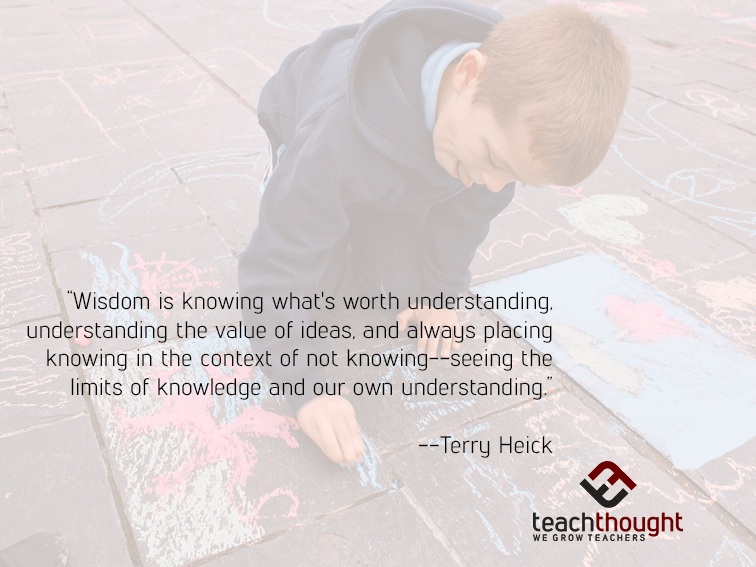
How To Help Students Understand Wisdom
by Terry Heick
This is a tough one with lots of angles, but I’ll start with this ‘definition’ for wisdom: Wisdom is knowing what’s worth understanding, understanding the value of ideas, and always placing knowing in the context of not knowing–seeing the limits of knowledge and our own understanding.
Classrooms are–perhaps increasingly?–seen as academic places of data, points, and performance. As learning spaces and places, they are as characterized by numbers, levels, and alphanumeric characters as they are curiosity, dreams, innovation, or authentic understanding.
In short, it just might be that we’ve put the processes, policies, and procedures before the human beings. And that includes both teachers (as anonymous managers of ‘learning cycles’) and students (as the evidence for our collective failures or success).
With that in mind, we’ve developed four characteristics of a ‘human’ classroom–your classroom, hopefully–and created statements of affirmation for each of the four: Wisdom, Inclusion, Community, And Innovation. We’ll release statements of affirmation for the others soon.
10 Statements To Help Students Understand Wisdom
If you’d like to make this kind of shift in your classroom, here are some statements of affirmation.
- We value our questions over our answers.
- We see how our perspective impacts everything–‘reality,’ for example.
- We instinctively compare what we believe we know with what there is still to learn.
- We see the relationships between ourselves and those around us as complex, important, and constantly changing.
- We (try to) grasp the significance of what we learn.
- We know that our own understanding begins with knowing what’s worth understanding.
- We seek to find the bias first in our thinking, then in others.
- We value our time and our place.
- We accept uncertainty.
- We minimize the separation between what we know and how we live.
10 Statements To Help Students Understand Wisdom